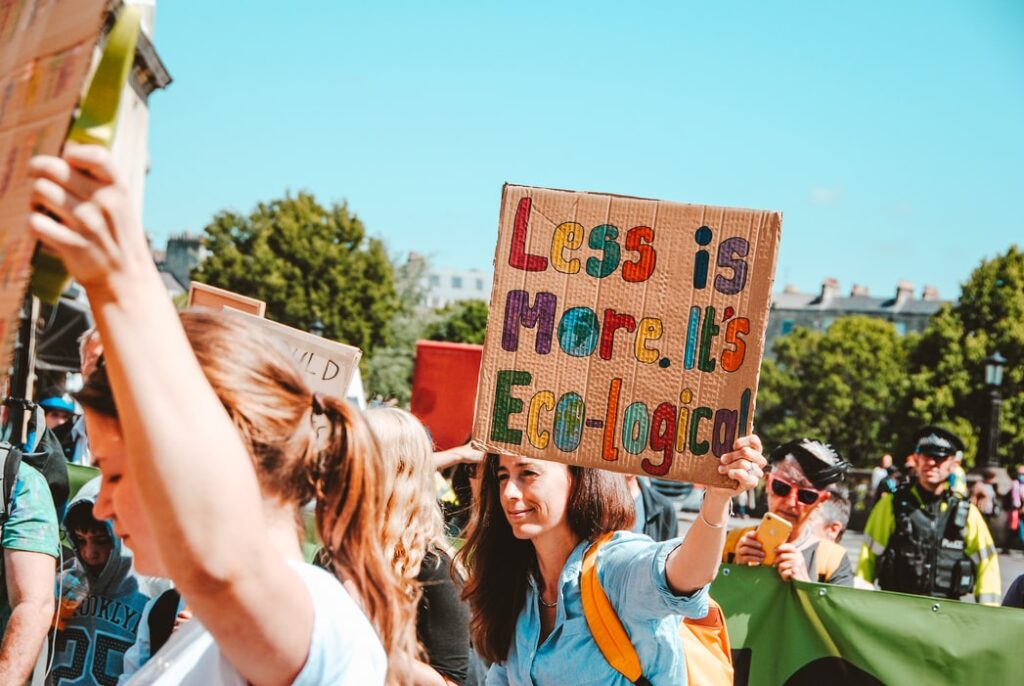The Zero Waste concept. What is it and what is it about? A list of 21 ideas on how to be ECO while saving money.
Let’s start with some facts. We produce around 12 million tonnes of rubbish a year. The vast majority of this waste ends up in landfills, although many of us declare to separate our waste. It turns out, however, that this segregation is not very successful, because the actual recycling rate is only around 20%. You will ask: so what? So what, then, is that along with the rubbish we also throw our hard-earned money into the bin. Anyone who wants to call themselves financially resourceful should therefore familiarise themselves with the idea of Zero Waste, which is making waves in the media and is really possible to implement at home. We explain what it actually is and share with you our 21 ideas on how to combine being ECO with saving money.

What is this Zero Waste thing all about?
Zero Waste is the idea, or rather the philosophy, that each of us can reduce or even stop producing waste altogether. Especially waste that cannot be recycled. Utopia? Not exactly. I took a look at my own consumer practices and immediately found several areas where I could easily stop using, for example, single-use packaging. And that would already be a contribution to the protection of our planet’s environment.
It goes without saying that the very slogan “Zero Waste” has purely marketing overtones. After all, we’re not talking here about something new, some sudden need. It has long been known that, as humanity, we produce too much rubbish and we have no idea what to do with it. Heaps of waste lying in landfill sites contribute to the degradation of the planet, are a threat to animals and pollute the groundwater. Incineration plants? A good idea, but very expensive and not a complete solution to the problem.
Since we live in a time when we look for authority primarily on social media, YouTube and gossip sites (I’m talking about in general, not you or myself), we had to come up with some way to draw attention to the problem of excessive littering of the Earth. Zero Waste sounds cool, sells well and fits perfectly into all these influencer trends.
Celebrities, who like to show how they themselves reduce the production of waste, immediately got involved in the campaign. They do it, of course, for image gain, but it’s nice that a side effect is mobilising more and more ordinary people to take a closer look at their everyday choices at the checkout.
Check out our Zero Waste ideas: easy and immediately applicable
I am not an active or even passive environmental activist. Sure, I’d like to live in a clean environment, not breathe in smog and not worry about whether I’ll still have water in my tap in a few years.
However, SmartEco is a blog about economy in a broad sense, so I was very interested in whether and to what extent the idea of Zero Waste can be combined with saving money. I already know that such a connection makes sense, and you can find concrete ideas below. It will be great if you use at least a few of them.
- Don’t buy plastic bags at the shop – and only for financial reasons. I’ve counted that on average, 5-6 plastic bags are taken out during a weekly grocery shopping. In my favourite discount store, you have to pay 25 cents for each one, which means that each time the bill increases by $1-1,25. This adds up to around $50 a year. It is worth switching to cotton and believe me, it is not a problem. Alternatively, you can use the plastic bags you buy occasionally as rubbish sacks.
- Don’t buy bottled water – one, bottled water is very expensive, and two, buying bottled water is not environmentally friendly. Even if you try very hard to make sure the empty bottle goes into the right container.
- Do away with the aluminium foil for wrapping sandwiches – a small thing, but it also fits in with the Zero Waste idea. Many people are in the habit of wrapping their sandwiches in aluminium foil, but for the sake of the environment (and to save money!) it’s worth switching to reusable plastic containers.
- Don’t buy clothes on a whim – I’ve never been a shopaholic myself, but I do need to buy new things from time to time. However, I try to delay this moment so as not to duplicate clothes that are still pretty good. I recommend this to you too.
- When you travel, take cosmetics that are poured into reusable containers – this works really well. You can buy such 100 ml containers in shops, into which you can pour e.g. body wash or hair shampoo. It’s enough for a short trip. Thanks to such containers you can pack in your hand luggage (you save on the plane ticket), and on top of that you don’t produce any more rubbish.
- Stop buying vegetables in packets and nets – and for a long time I didn’t pay attention to this at all. Until I realised that a 2.5 kg net of potatoes costs $4.99 and the loose potatoes lying next to it cost only $1.29 per kilo. Pure frugality and an environmental benefit.
- Practise sharing economy – you may remember my post in which I introduced the idea of sharing economy. I try to use it myself. If I know that I will need a given item once, I first ask my family and friends if someone doesn’t already have it and could lend it to me. I recommend it!
- Switch to bar soap – why? Because it is more efficient. Liquid soap wears off much faster, and buying it always means producing another plastic rubbish. Bar soap comes in a cardboard box, which can easily be recycled.
- Something for the ladies (theoretical idea) – I don’t practice this method for obvious reasons, but I have heard that you can replace sanitary pads and tampons with a menstrual cup. I hope that readers will confirm or disprove this theory.
- Don’t buy cheap – this is a very important rule that I try to stick to in my house. I once bought a sink faucet for $99 in a promotion and never again (it started to leak after 3 months). Instead of buying the cheapest things, it is better to find the golden mean of price/quality, which is not always so easy. This rule applies equally to household appliances (sometimes it is worth paying extra for energy class A++ or A+++), as well as e.g. clothes. And if you can’t afford a decent product, it’s better to postpone the purchase so that you can eventually accumulate the money you need.
- Try to buy drinks in glass bottles – they are much more environmentally friendly as they can be easily recycled. Yes, usually drinks in glass bottles are more expensive, but you can deliberately look for ones in returnable bottles – you can always get some money back.
- Limit your intake of supplements and medicines for minor ailments – I have already proven in an article that you can save a lot on supplements and medicines, and at the same time reduce the production of rubbish (supplements are always packed in plastic packaging).
- Give up coffee on the town – I remind you of the latte factor!
- Buy e-books, use music streaming – I do it mainly for practical reasons, but I know that in this way I also contribute to the environment. Convenience and saving all in one.
- Refuse to use plastic straws – it’s a good idea to get this rule into your blood. Whether you are at a friend’s house, in a pub or a restaurant. There are no plastic straws in my house anymore.
- Save water – on the blog you will find lots of advice on how to start saving water easily, which is also part of the Zero Waste idea.
- Try washing nuts – I don’t wash using nuts myself, but it’s about time I started. Especially since I have to be consistent – I mentioned the topic of washing nuts in one of my articles.
- Replace chemicals with natural cleaning products – there is no problem with this and take my word for it that simple vinegar, citric acid and baking soda will take care of 90% of your cleaning.
- Don’t print pointlessly – shopping lists, business messages, article excerpts, inspiration, recipes – all of these can be read from your smartphone screen and you don’t need a printed version. Print only what you need to print.
- Experiment with DIY – there are plenty of ideas here, and for my part I can recommend playing around with painting old furniture. It’s a lot of work, but the effect is very nice and you don’t have to spend money on new furniture.
- Sell unnecessary things – why throw away something that might be useful to someone else? Check out how I earned $582 by simply cleaning my house!

Of course, these are just ideas that came to my mind while writing this article, not hard rules to follow. If you happen to love having a coffee out and reading paper books, that’s fine with me! You can look for savings and ways of zero waste somewhere else. It’s important to save on the things that aren’t important to us so that we have more money for the things that are important to us. And by the way, it’s always good to think about our planet.
Do you have your own ideas for combining the idea of Zero Waste with saving money? Let us know in the comments. Let others be inspired!
Leave a Reply